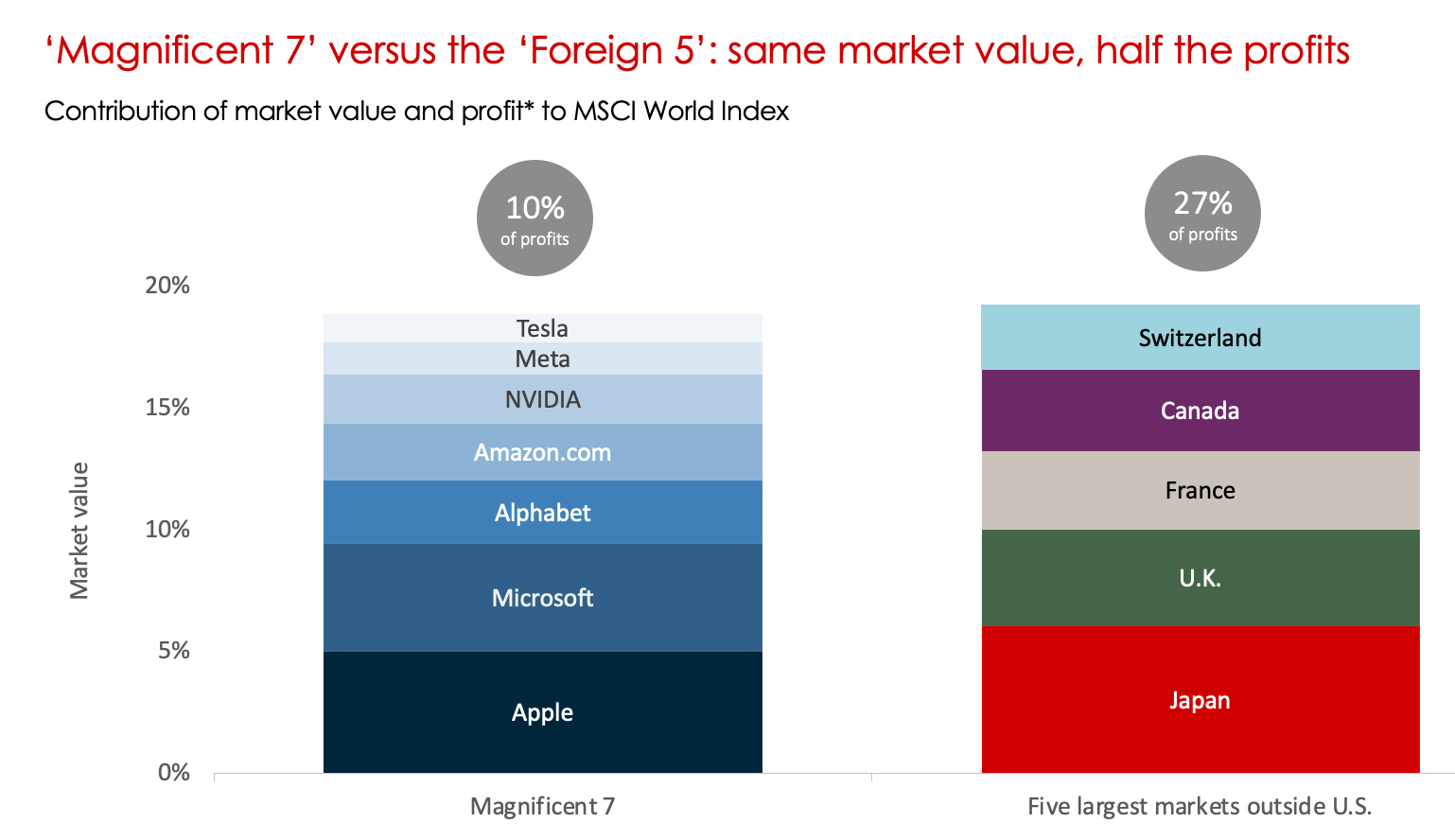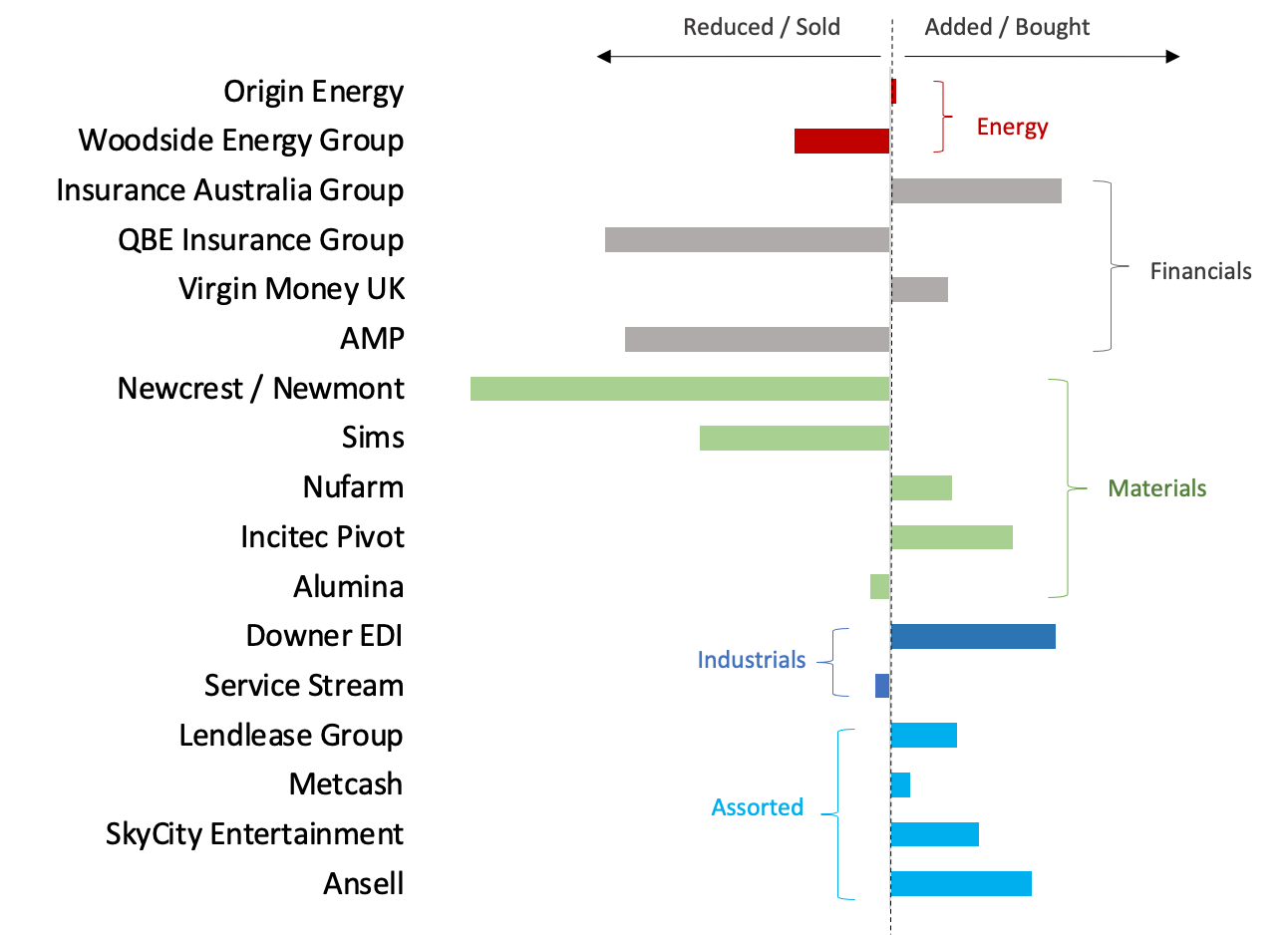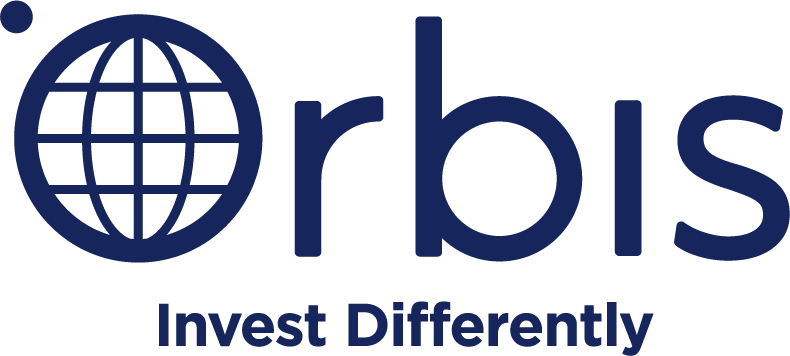Brighter days ahead for Value stocks, says Allan Gray
An unavoidable part of being a contrarian investor is that at some point, you’ll end up on the wrong side of market momentum. That’s something contrarian fund manager Allan Gray addressed during the opening of its latest investor webinar.
Eric Marais, investment specialist of Allan Gray's global equities sister company, Orbis, referred to the unusual concentration of returns from the S&P 500 in 2023, which were driven almost entirely by the “Magnificent Seven” technology stocks.
The Orbis Global Equity Fund’s underweight to these companies was a substantial headwind last year, though Marais explains it largely overcame this via other equity allocations.
“It’s very unusual for what is supposed to be a broadly diversified index,” Marais said. He points out that such periods of extreme concentration have only happened twice before: during the technology bubble of 2000 and in the aftermath of the COVID downturn in 2021.
Marais flipped the conversation by considering the relative risk investors take in buying a selection of these companies versus a broader mix.
"Foreign 5" versus "Magnificent 7"
He draws a comparison between the seven largest US tech stocks and the combined markets of the “foreign five” economies – comprising some of the largest ex-US countries of Japan, Canada, the UK, France, and Switzerland.
“You would have paid the same to invest in them but would have received around three times more profits than from the magnificent seven,” Marais said.
Combined, the seven companies make about half a trillion dollars of income today, but to justify their current valuations, Marais emphasises they need to continue growing every year to compound their returns.

While the fund narrowly undercut its benchmark, the MSCI ACWI, in 2023, Marais emphasises his team currently sees many opportunities – particularly given the wider spread between Growth and Value stocks.
How Orbis is positioned
The Orbis Global Equity Fund’s top 10 comprises companies from a broad mix of industries and sectors, including a payments firm, a Japanese bank, a European industrial company, a US nuclear utility, a semiconductor manufacturer, and a US healthcare stock.
Marais notes the diversity of company types but says one thing unites them: they’re all value-oriented companies.
Highest conviction stock pick: Fleetcor (NASDAQ: FLT)
Its highest-conviction position is Fleetcor, a US-based, owner-operated company that provides payment services to small businesses.
Having delivered annual earnings-per-share growth of 20% each year since 2010, Marais draws comparisons with Microsoft (NASDAQ: MSFT). Two other metrics he singles out here are its return on invested capital and profit margins. Marais also emphasises its resilience through difficult economic environments, including the GFC and the COVID downturn.
“And another compelling aspect about Fleetcor is that it is available at a valuation multiple of 13 to 14 times,” Marais said.
Unrealised potential: Nintendo (TYO: 7974)
Nintendo, the name behind one of 2023’s other blockbuster movies, Mario Brothers – based on the ultra-successful 1980s video game title – is also a top 10 holding of the fund.
Marais noted the firm’s Switch video game console has enjoyed success since launching in 2017, pointing out that Nintendo games comprise around 40% of the 50 top-selling games of all time.
He expects Nintendo will soon release a new generation game console, and sees strong growth prospects in a couple of areas:
- Growth of online sales of games, which are still dominated by physical store sales.
- Subscription model, which will likely carry existing subscribers over to the new games platform.
- Ownership of well-loved intellectual property, such as the Mario Brothers characters, which have so far been under-utilised.
"The blue-sky opportunity seems quite appealing and we’re not paying much for it,” Marais said, referring to its P/E multiple of 14 to 15 times.
Australian equities
The Allan Gray Australia Equity fund’s portfolio manager, Suhas Nayak, noted its returns also missed the benchmark due to its underweighting of large caps. This topic was also addressed by Allan Gray Australia CIO Simon Mawhinney in the latest quarterly update.
While acknowledging the disappointing returns, he noted it remains, “unclear what has given rise to this trend. Perhaps it is the higher liquidity that the largest companies offer relative to their smaller counterparts, something thematic or exchange-traded funds might value greatly.”
“Or it may be the perception that, as we navigate potential economic storm clouds on the horizon, the largest companies will be the safest.”
Just as Mawhinney emphasised earlier, Nayak says the team maintains conviction in its approach.
Equity Fund relative performance attribution – 12 months

Source: Allan Gray Australia as at 31 December 2023. Past performance is not indicative of future performance.
Portfolio positioning
The fund’s biggest under-performer of 2023 was Alumina Limited (ASX: AWC), a bauxite mining, alumina refining and aluminium smelting company. But it remains confident the firm’s fundamentals are sound and the fund remains invested.
But this was largely offset by the performance of gold miner Newcrest, which was delisted from the ASX in October after being acquired by global firm Newmont (ASX: NEM).
“We’ve held Newcrest because of the operating mines and future mines that might be brought onstream, not because of the gold price,” said Nayak.
“Newcrest has always been positioned on the lower end of the cost curve. That’s similarly true of Newmont, though to a lesser degree. We believe the economics of demand and supply should supply some support in the longer term.”
Some of the portfolio changes made during 2023 include increased allocations to:
The team also reduced its holdings in QBE Insurance Group (ASX: QBE) and Newcrest, where it took profits off the table.


1 topic
8 stocks mentioned
2 funds mentioned
3 contributors mentioned

